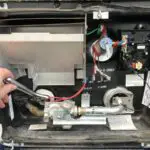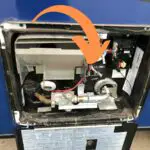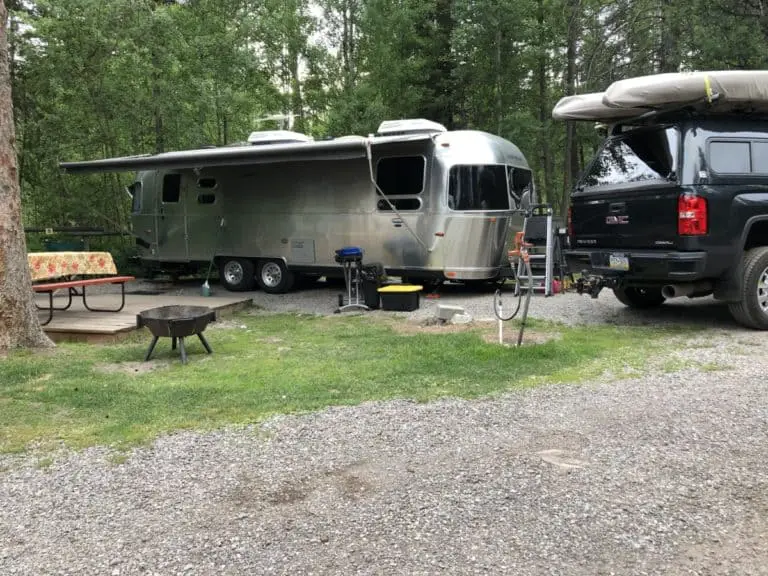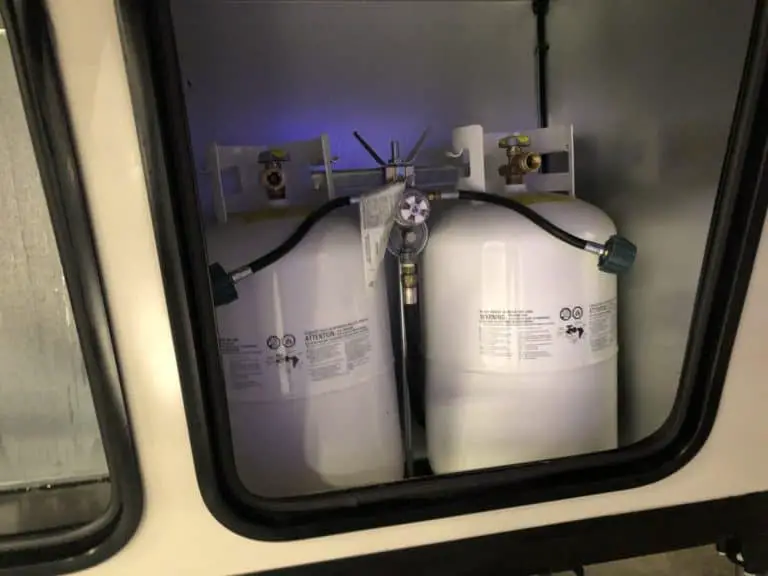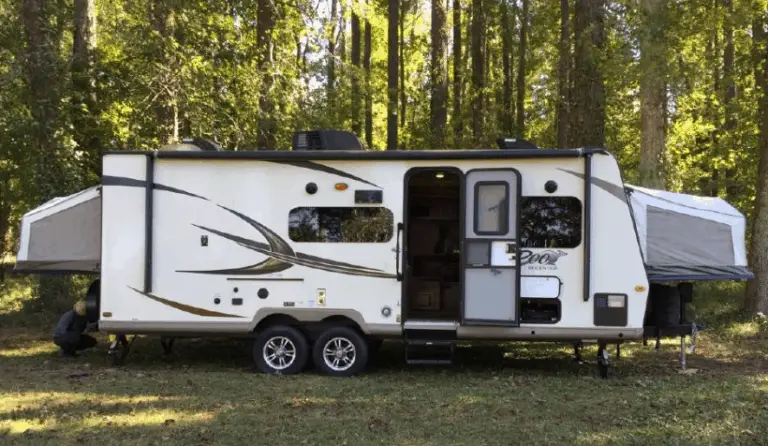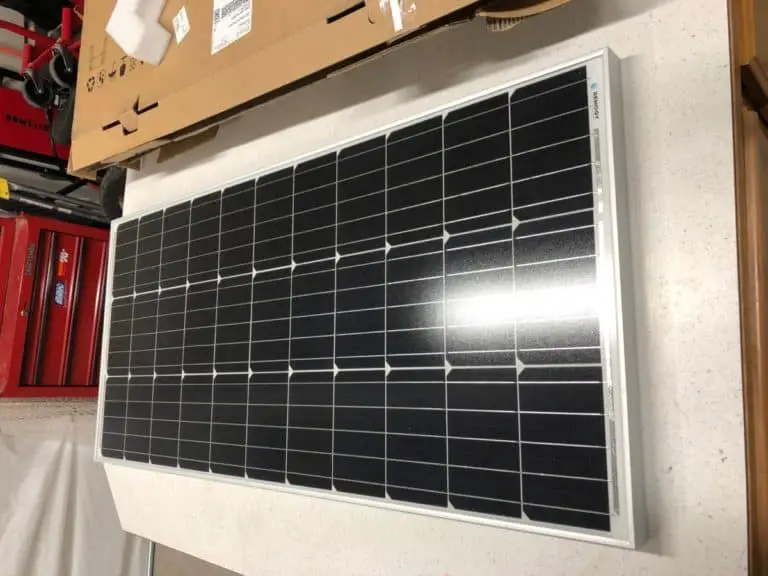How Much Does It Cost To Replace a RV Water Heater?
Replacing an RV water heater can be expensive, depending on what you want to replace it with. There are many options, so choosing the right one for you is essential.
Replacing an RV water heater ranges from $500 to $3,000. Although the average cost is around $1,000, including labor and material costs. However, prices vary due to factors such as the water heater model, the required installation steps, time, and the associated permit fees.
You should have a rough idea of how much it would cost to replace one. However, there is still a great deal to learn about this fundamental aspect of RV living. In this detailed guide, we’ll explore each RV water heater option in greater detail to help you pick the one that’s best for your vehicle.
RV Tank Water Heaters
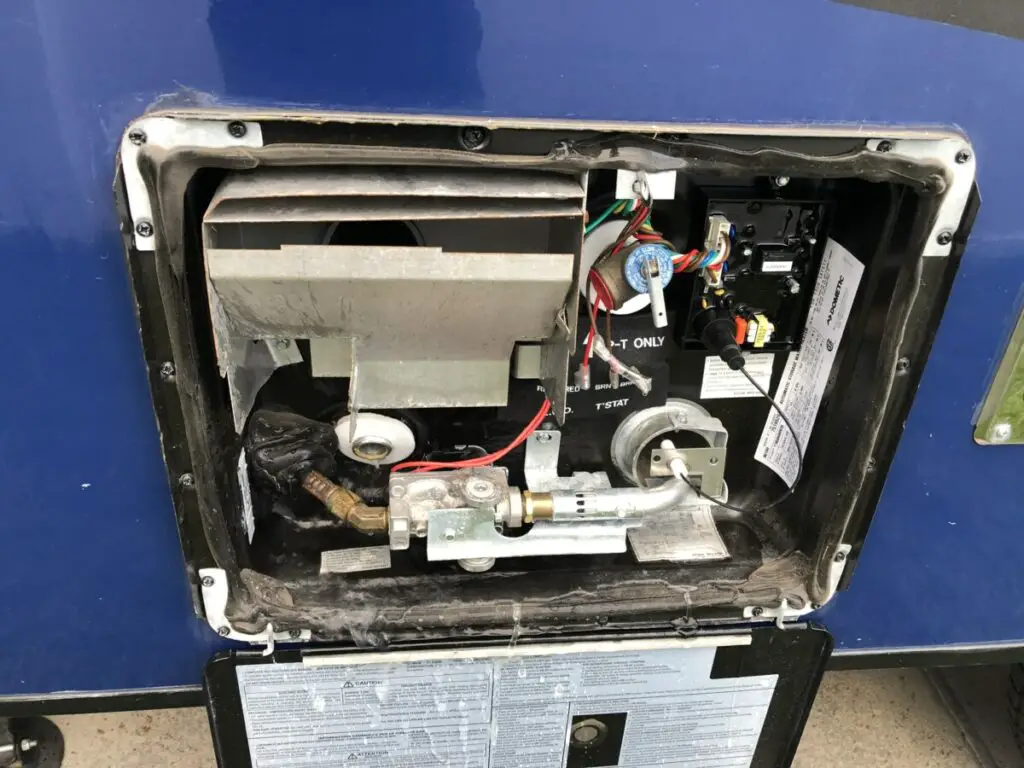
Tank-style heaters use a tank to heat and store water connected to the RV’s water system. As the water in the heater is drained, it is replaced and heated with fresh water from the system. High-end RV heaters can operate on electricity or propane, making them suitable for various applications. Our favorite tank model is this Gas/Electric Dometic.
Because of their intended location in a moving vehicle, RV heaters are typically much more compact than residential heaters, particularly tank-style heaters. Tank-style water heaters found in homes usually have capacities ranging from 40 to 60 gallons. In contrast, RV tanks typically only hold 6 to 10 gallons. A typical 10-gallon water heater costs around $800 to $1000.
Repairing or maintaining it can also cost quite a bit of money, so knowing how to look after it is essential. Follow these simple steps to extend the life of your RV water heater.
If you want to understand how your heater works, pay attention to the cycle it goes through. Unusual noises are usually the first sign that there is a problem. Annual inspections of the burner tube for insect activity and cobweb buildup and cleaning are required for propane heaters if they are left unused for a long time.
Anode rods are long metal cylinders or strips usually found near the top inside tank-style units. They attract minerals found in water and prevent them from accumulating in the pipes. These rods should be checked regularly for signs of corrosion or depletion indicated by a mushy or thin appearance. It is also essential to check if it is tight enough to prevent leaks and if it is worn down, it must be replaced.
Keeping the water levels topped up is essential because if the water level is low, the anode rod is exposed, which will speed up the corrosion process. Regardless of how well your water heater is performing, it would help if you inspected it for leaks regularly. If you notice any problems with your RV water heating system heating, get it inspected by a professional.
RV Tankless Water Heaters
Consider installing a tankless water heater if you want hot water in your recreational vehicle immediately, but only when you need it. The water in this heater is used directly from the water source, so there is no need for storage. Our favorite pick for a tankless RV water heater is this model.
A tankless water heater’s job is to heat the water as it passes through the system. The water heater is supplied by a pipe and pump system. Depending on the type of heater, it then passes through a gas burner or a very powerful electric heating element. Models with a maximum flow rate of five gallons per minute are available, which is more than enough for a shower.
When connected to a municipal water system, you can always have a never-ending hot water supply whenever you need it. However, the quantity of hot water available instantly and on-demand is constrained by the size of your water tank when boondocking.
This water heater is smaller and uses less energy because it heats the water as it flows through the device. Unlike tank storage water heaters, which heat water constantly, tankless models only heat water as needed. Most households use water heaters with tanks to store water. However, hot water in a recreational vehicle is a great way to save space and gas because it does not require water storage.
Propane Vs. Electric RV Water Heaters
Electric water heaters are more expensive than propane ones. However, it is less costly to buy the unit and more cost-effective to have a propane one running for extended periods than an electric one.
RV Propane Water Heater
Almost all RVs, trailers, and motorhomes come with a propane heater. This propane heater is the most effective way to keep the rig warm. However, it will still require battery power to start and run the fan. Therefore, keep in mind that the power consumption of the battery must be considered.
Electric heaters have a much lower flow rate than gas heaters. As a result, propane water heater prices can range from $1,000 to $1,500, with an annual fuel cost of around $350.
RV Electric Water Heater
The fact that they do not require propane to function is a significant plus. No extra fees will be incurred for their use at a campground where utilities are included in the rate. Furthermore, the efficiency with which these heaters warm a room is far superior to that of the heat pumps previously discussed. Only a couple of these is needed to provide sufficient heat in a recreational vehicle.
Electric water heaters emit no emissions, making them entirely safe for use. They are also very practical because they require little maintenance or cleaning. Repairs are simple because the heater element can be swapped out quickly if necessary.
Because of their compact designs, electric water heaters are ideal for people who don’t have much space. With an electric one, you can take a hot shower or bath whenever you want without worrying about your propane tank or a complicated installation process.
The installation of an electric model is the most cost-effective option, with costs ranging between $800 and $1,500. Take note that you will not be required to spend money on ventilation systems or related components like you would for propane water heaters.
Here’s a quick video on how to replace your RV hot water heater yourself.
Conclusion
The total cost to replace the water heater in an RV can start anywhere from $800. They are available in various styles and fuel types, such as electric, propane, and electric-only models. The cost varies according to its capacity, efficiency, and the kind of power source required. The best RV water heater will meet your needs while staying within your budget.
Be the first to be notified about FREE tips, hints, coupon codes, and email-exclusive information. All for FREE!



